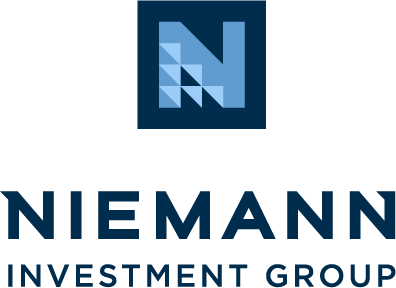“A Penny Saved is a Penny Earned”
“A penny sav’d, is a penny got” were the actual words Benjamin Franklin wrote in his Poor Richard’s Almanac in 1737, but the connotation is the same.
Besides all his other many talents, Benjamin Franklin was also a brilliant businessman, and he understood the power of saving money as well as earning it. The idea is that saving a penny is just as valuable as earning a penny.
Many of us do not really understand those words until we start working and started paying taxes.
As I have evolved in my investing career, my tax strategies for reducing taxes have been just as vital for building wealth as my investment strategies for growing income. If you live in a “blue state” your total tax liabilities – federal, state, and local income taxes as well as local property taxes – quickly exceed 50% for the highest earners!
If you could reduce your tax liability by half, it would be just as valuable for your net worth as adding another 50% to your income.
Example:
Gross Income: $100 $150
Effective Tax Rate: 25% 50%
Tax: $25 $75
Net Income: $75 $75
Bottom Line: you’re just as well off earning $100 if you can reduce your tax rate from 50% to 25% as you are adding another $50 to your income but still paying 50% in taxes.
Now imagine increasing your income AND reducing your taxes.
The investing elites of the world – the ultra-rich, family offices, and institutional investors like private foundations and university endowments – have long made commercial real estate a central part of their investment strategy.
Of all the ways the self-made ultra-rich have made their fortunes, real estate outpaced every other method by at least 3 to 1. That’s because CRE not only delivers above-market returns with lower volatility because of its non-correlation to Wall Street but also offers significant tax benefits.
Ways to Lower Taxes Through Commercial Investments
The Passive Advantage
Most passive investments like private equity, real estate syndications and private investment funds are typically structured as partnerships (LPs or LLCs) to maximize tax benefits for their partners. Here’s how.
1. Lower Tax Rate
Active income from a job is taxed at ordinary rates, while income from passive investments like private equity, real estate syndications, and private investment funds are typically set up as partnerships (LPs or LLCs) designed to maximize tax benefits for its partners. Passive profits distributed to the partners are taxed at the individual levels at the capital gains rate. The current top capital gains rate is 20% while the top tax bracket for ordinary income is 37%.
2. Allocation of Deductions
Deductions from a private real estate partnership are distributed to its partners on a pro-rata basis and reported on each partner’s annual K-1. Deductions considered passive losses can be used to offset passive income while any other deductions can be used to offset ordinary income to reduce tax liability. For a professional like a doctor or lawyer still collecting a salary from a day job, a passive real estate investment could be a significant benefit towards reducing the tax liability on other passive income, and (in some instances, such as when a spouse qualifies as a real estate professional) active income.
In addition to the typical business expenses that are deductible by real estate funds, additional deductions related to real estate include:
- Depreciation (Bonus and Regular)
- Mortgage Interest
- Property Tax
- Operating Expenses
- Repairs
3. Avoiding Self-Employment Taxes
Because business owners are considered active income earners, they are obligated to pay self-employment taxes like FICA (social security & Medicare) payroll taxes. Because private fund investors are considered passive investors and not active wage earners, they are exempt from paying FICA taxes. That’s a savings of 7.65% per year (15.3% for those who are self-employed).
The IRA Advantage
4. IRAs, SDIRA’s and Solo 401(k)’s
Most savvy investors are aware of the significant tax benefits available from investing through a Self-Directed IRA, but few are aware of the Solo 401(k) option. When structuring one of these retirement plans like a Roth option, the tax benefits can be significant.
A Solo 401(k) plan is an IRS approved retirement plan, suitable for business owners who do not have any employees, other than themselves and perhaps their spouse. It is basically a traditional 401(k) plan covering only one employee.
A Self-Directed IRA is an IRA that gives you control over your investments. Unlike other IRAs held at banks, brokerage firms, and other institutions, you’re not limited to stocks, bonds, or mutual funds.
Both the Solo 401(k) and the SDIRA allow you to invest in alternative assets including real estate, private investments, limited partnerships, commodities, etc. This is what distinguishes Solo 401(k)’s and SDIRAs from 1031 exchanges, which are limited to direct real estate investments.
Solo 401(k)’s and SDIRA’s both offer traditional (tax-deferred) and Roth (tax-free) options. Whereas the traditional options are funded with pre-tax dollars, the Roth options are funded with after-tax dollars. The main advantage of the Roth option is that the gains accumulate and can be withdrawn tax-free.
When considering investment options, don’t just focus on the income aspects. Remember the potential for tax reduction as well.
5. The Holy Grail
The ideal cocktail of tax strategy includes: buying real estate (often with leverage/debt); depreciation (paper) losses, especially through accelerated (aka bonus) depreciation and the use of a cost segregation study; real estate professional status (thereby allowing passive losses to offset active income); long term gain holding period; and 1031 exchanges to keep deferring the gain (advanced techniques covered here and here). (Check out a previously recorded podcast on this topic here where I cover How to Pay Zero Income Taxes (Legally) While Making 6-7 Figures.)

Ferd Niemann
Ferd Niemann is a real estate investor (with a focus on mobile home parks) and business-minded lawyer, as well as a trained financial analyst and an experienced entrepreneur. His experience includes mobile home park investments and turnarounds, retail development and redevelopment, residential investments, and real estate law. In addition to his investments as an operator, Ferd has invested in storage, apartments, restaurants, medical startups, and a handful of other ventures.
